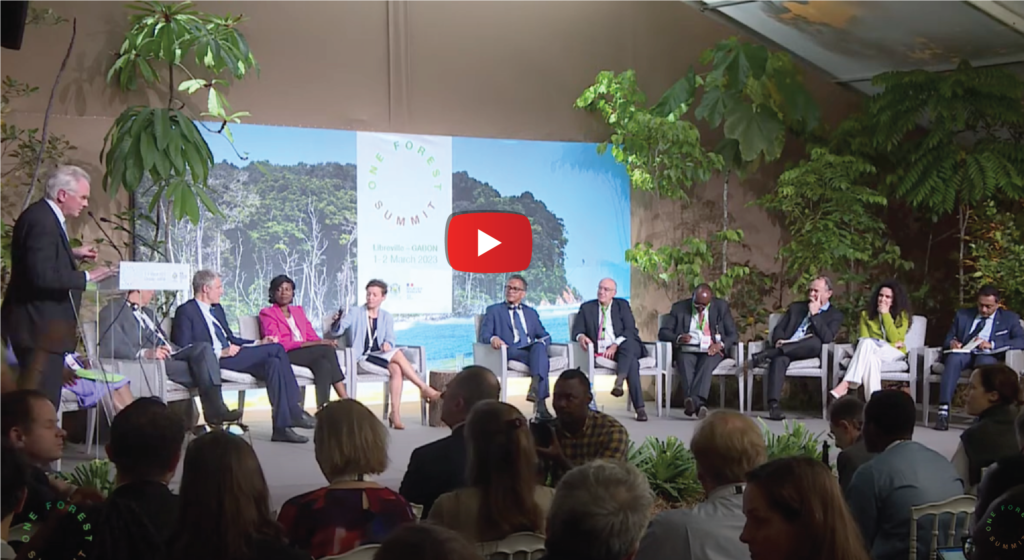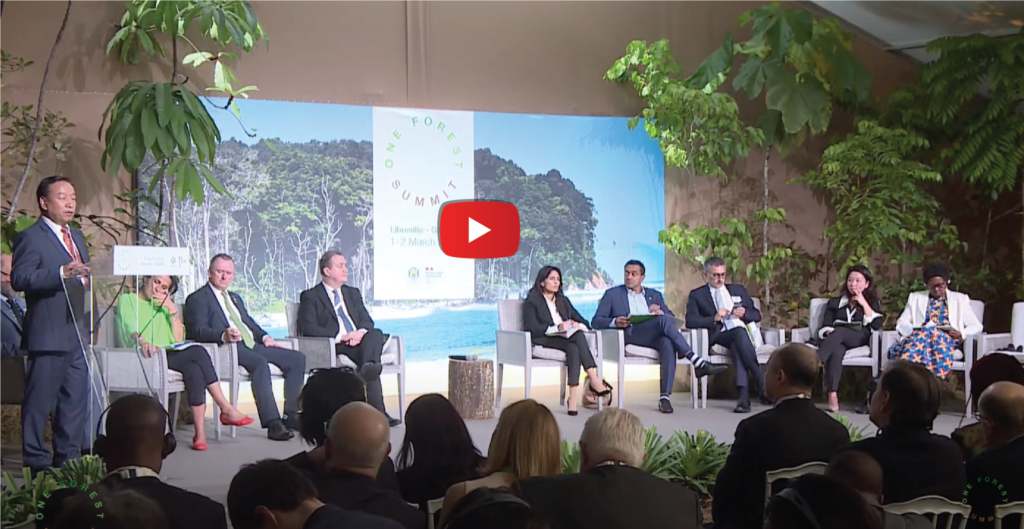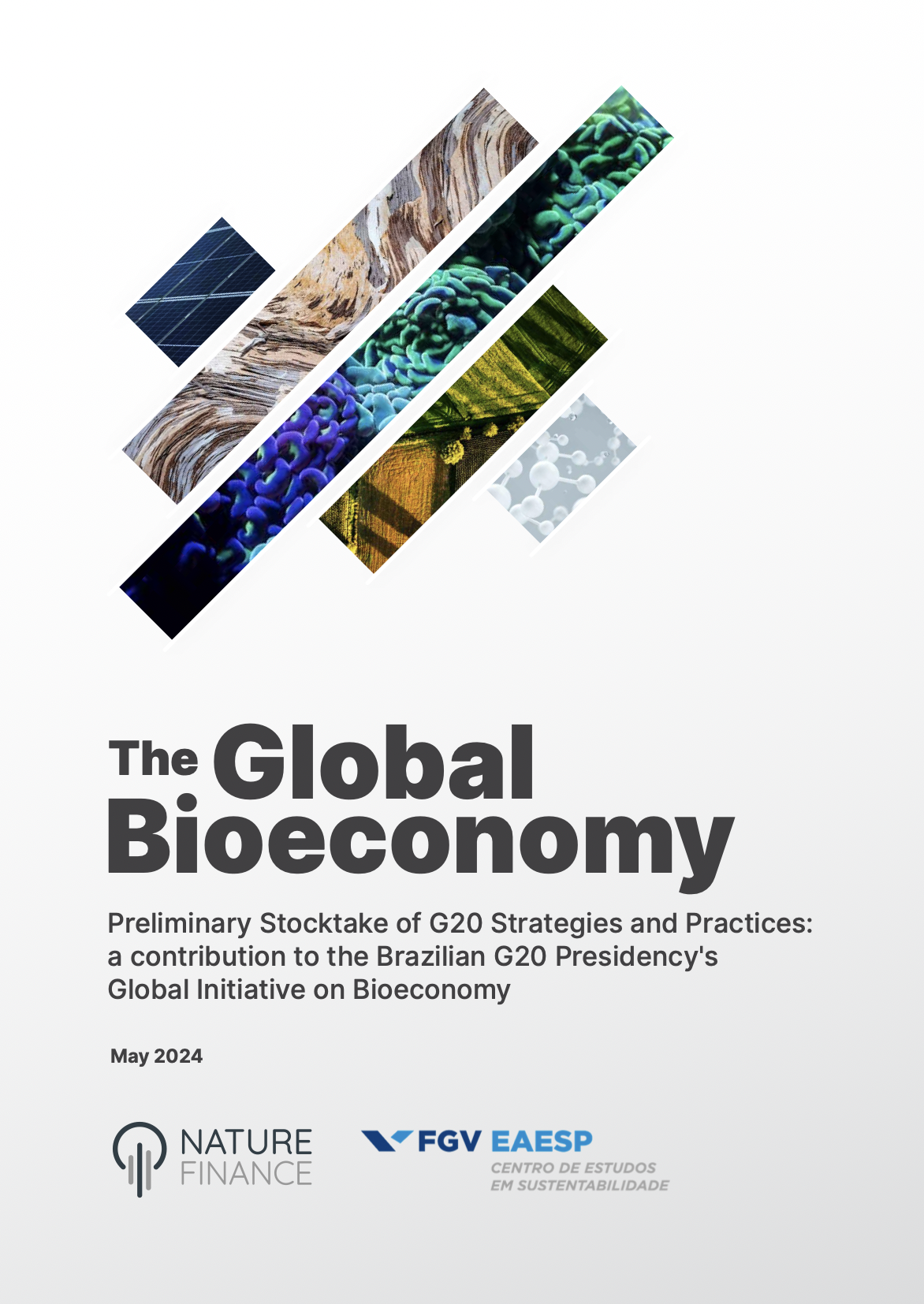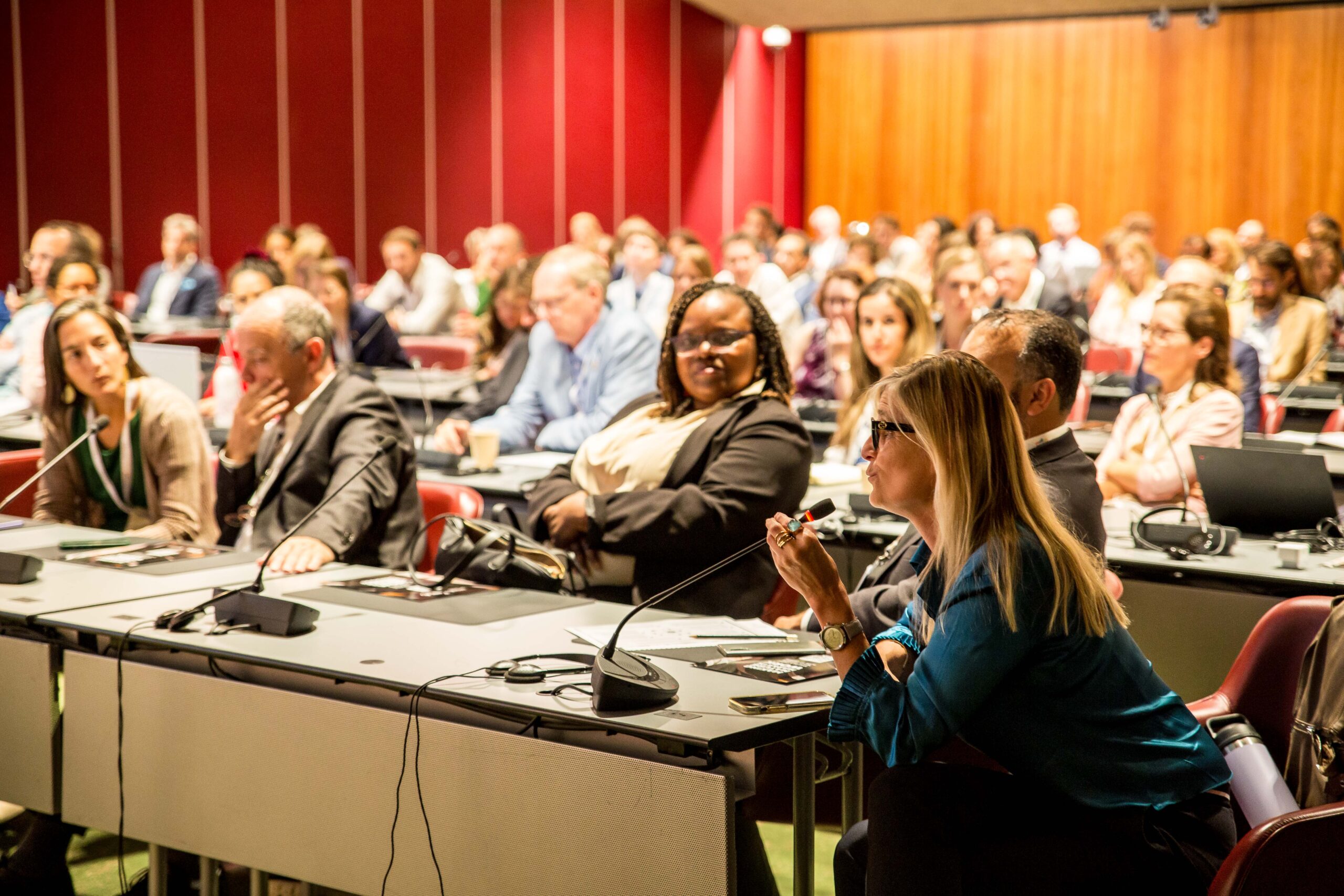- Positive Conservation Partnerships initiative launched with first investment of combined 100 million euros between France, Conservation International and the Walton Foundation
- Calls for financing mechanisms that are correctly priced, integrate climate and nature, and can be scaled.
- Need for standardisation around treaties, commitments and instruments to create market confidence and for private sector investment to flow – including through credit enhancement.
High-level Segment for Heads of State and Governments
President Emmanuel Macron laid out a 4 step process for more concrete action to protect and finance forests:
- A protected forest which maintains, or even increases, its rate of carbon sequestration, is not only a forest closed to humans, it is a forest exploited sustainably and fairly remunerated.
- Protecting the forest is not contrary to the economic interests of forest countries. It’s even quite the opposite.
- It is legitimate for these countries to keep intact and ask us for remuneration for the ecosystem services that are rendered by this super protection.
- The remuneration system still has to be built: we need to supplement carbon finance with more comprehensive mechanisms that integrate the notion of stock, that combine carbon and biodiversity and that are more solid and regulated on the biodiversity and carbon finance side.
“There are no better investments today than investing in our forests”.
President Ali Bongo Ondimba
ANNOUNCEMENTS
- Positive Conservation Partnerships (PCPs) initiative announced, connecting “forest countries”, international funders and nature experts to create sustainable forest management and payment mechanisms including “biodiversity certificates”, which can be purchased by sovereign states and private actors. The first investment of 100 million euros, between France, Conservation International and the Walton Foundation will aim to produce tangible results at UNFCCC COP 28 in Dubai.
- 10BY30 Initiative for Sustainable Value Chains, aiming to create 10 million jobs by 2030. The ambition is to cultivate sustainable value chains through decarbonization, investment and training, ensuring that local communities benefit directly from sustainable development.
Summit Session: Leveraging Innovative Financing Mechanisms for Nature

Leveraging public financing to de-risk private capital. Credit enhancement by public financial institutions, including the World Bank and international Development Financial Institutions, can be the invaluable guarantor, improving the risk profile of nature investments. Read more on the role of credit enhancement in sovereign sustainability-linked debt issuance
Utilising the tools and institutions that already exist. No matter the “colour”, Bonds and Debt for Nature Swaps are not new financial instruments – the challenge now is bringing these instruments to scale.
Save the Date: release of a new Sustainability-linked Sovereign Debt Hub paper on ’Scaling sustainability-linked sovereign debt’ on March 31st. Register to join the launch
Align all financial flows with nature positive outcomes. All of these initiatives to scale up existing financial instruments in support of forests, and nature more broadly, are linked to the underlying need to align financial flows with nature positive outcomes – included in Goal D, Target 14 of the Kunming-Montreal Global Biodiversity Framework
NatureFinance’s Alignment Tool launched at COP 15 is designed to support this and the first pilot of the Tool in a sovereign nation is currently underway in Gabon.
Developing an impactful generation of biodiversity credit markets. These markets can drive investment into the efforts by nature’s stewards to protect and regenerate nature. As the interest in these new markets is growing, careful consideration should be given to key governance questions.
Read and join the NatureFinance consultation on shaping effective governance of high-performance, high-integrity Biodiversity Credit Markets. Join a consultation webinar.
Summit Session: Market-based Instruments for Climate, Nature and Peoples

The session discussed the need for good governance, clear policies, incentives, institutional frameworks, and pilot testing of biodiversity positive carbon credits in order to scale up innovative nature finance.
The Global Environment Facility (GEF) paper Innovative Finance for Nature and People underpinned the discussion. NatureFinance, as a member of the GEF’s Working Group on Innovative Mechanisms to Address the Biodiversity Financing Needs, welcomes the recommendations set out in the paper.
A “price floor” for carbon credits was a common theme during the Summit, including from Elizabeth Mrema, Deputy Executive Director of UNEP in this session who called for the price floor to be set at US$30-50 per tonne of C02 emissions.
“Getting carbon and biodiversity credit markets right is a determining factor in achieving our climate, nature, and broader development goals. If we fail to do so, these goals may become unreachable. In fact, without a comprehensive makeover, these markets will more likely be part of the problem.”
Simon Zadek, Executive Director of NatureFinance in Project Syndicate article
The Trouble with Carbon Markets.








